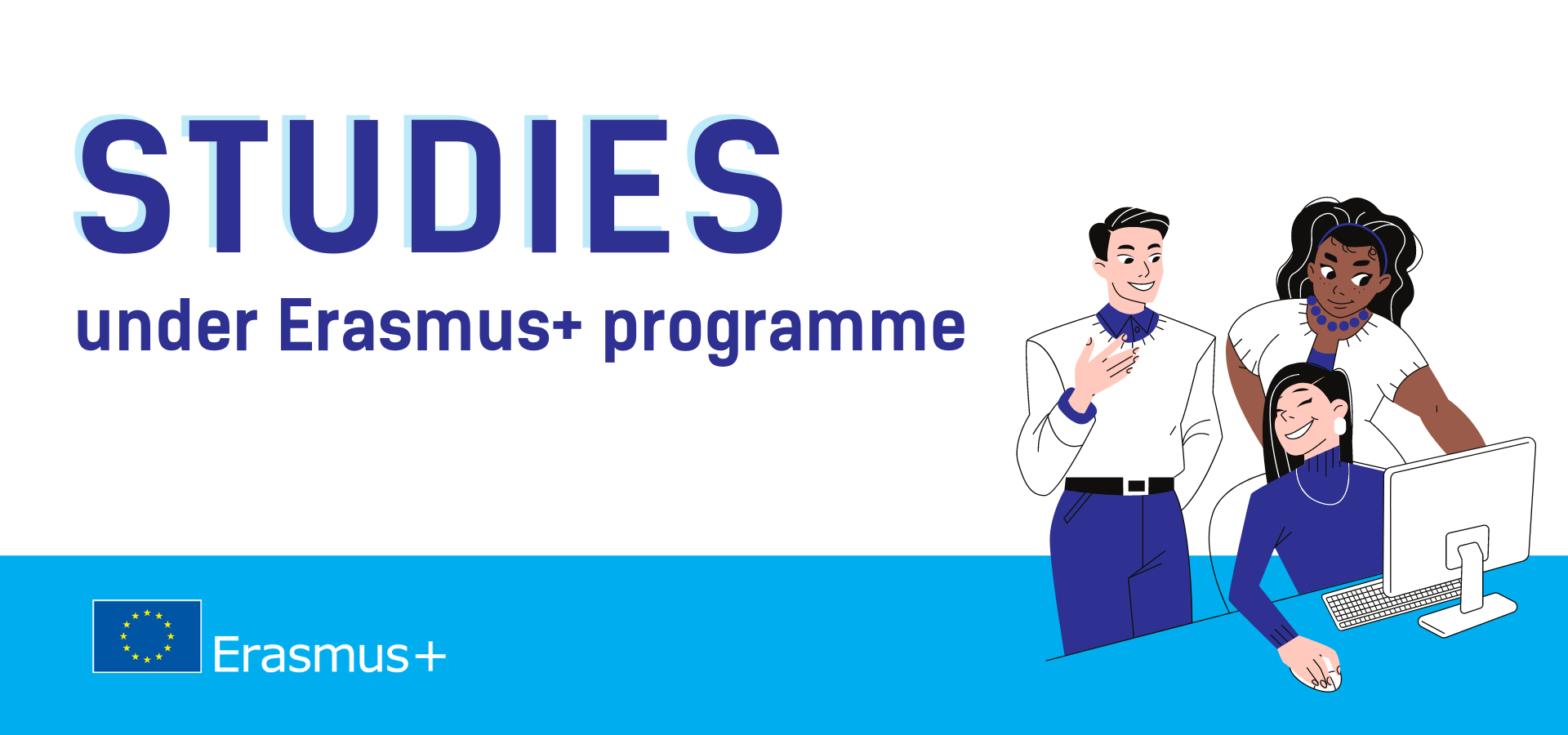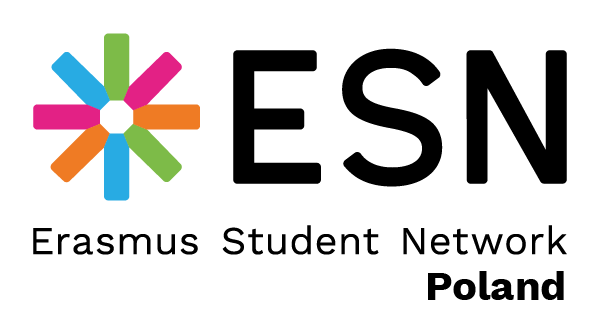
Erasmus+ studies is definitely the most popular form of mobility. Students get the possibility of studying abroad for one or two semesters, carrying out projects and taking exams in foreign languages. So what to do to take part in the programme?
How long can you spend abroad within Erasmus+ studies?
Studies within Erasmus+ have to last 3 months at minimum and 12 months at maximum. You should find out for how long the scholarship is granted for each specific stay abroad, it may turn out that in some cases the student will only receive a grant for a part of his/her stay (rarely, but it happens).
What kind of universities can you go to?
You can go to the universities that collaborate with your home university, which means that these are the universities that signed inter-institutional agreements with your home university. You will find a list of them in the International Relations Office (the name of that office can be different in every university). Universities which cooperate within Erasmus+ are called partner universities.
Programme countries vs. partner countries
Erasmus+ studies are possible in programme countries as well as in partner countries. Programme countries are 27 countries in European Union, European Economic Area: Iceland, Lichtenstein, Norway and also North Macedonia, Serbia and Turkey. Partner countries are remaining countries of the world. It depends on the universities with which universities from both, program and partner countries they cooperate with.
What does the recruitment and stay abroad look like?
Recruitment is led by the university, which also maintains all legalities. It can be organised by university as a whole or by every faculty separately. Usually, students are recruited in the academic year preceding their departure, but some universities organize additional recruitment for places that have not been used (foreign universities guarantee places for Polish universities’ students and if there are no applicants, another recruitment process is opened). It is worth checking in advance when and how often recruitment is organized, because each university adopts its own schedule. It is best to inquire about the applicable dates at the International Relations Office.
When it comes to procedure, students have to take part in recruitment within their university programme, which means submitting documents whether online or in the International Relations Office. In most cases, students can choose 3 universities they want to go to, sorted by priority (from most to least wanted). Thanks to the vacancies guaranteed by inter-university agreements, the home university has guaranteed places at foreign universities for its students, therefore, students do not have to worry about being accepted to a foreign university - the result of internal recruitment counts. In the next stage, students are selected for the university on the basis of criteria specified by the university (e.g. grades, interview or language level). After the results are published, the first thing to do is to celebrate :D and then to complete all the formalities related to the stay abroad, which you can read about below.
What criteria are taken into consideration during the recruitment process?
The most important requirement is the knowledge of the language that lectures abroad are held in. Other criteria are determined internally by universities and may be, for example, the average grade, extracurricular activities for the university or an interview. In case of Erasmus+ studies and internships, the requirements differ slightly, so it is worth checking with the International Relations Office what matters most.
What formalities have to be fulfilled before mobility?
After receiving the recruitment results, it’s time to fulfill formalities at both universities - the home and the host one.
First of all, you should make sure (most often by checking on the website or by writing an e-mail) what type of documents the host university requires from the Erasmus+ student and what are the deadlines for submitting such documents. In most cases, these are forms with student’s personal data, nothing difficult.
The key document related to the stay abroad within Erasmus+ studies is the "Learning Agreement for Studies" (LAS), which must be filled in and signed by the sending university, the host university and the student. The agreement specifies the dates of the student's stay abroad, the courses that the student will pursue at the host university and the information on coordinators from both universities. The LAS is the basis for recognition and accreditation of a stay at foreign studies by the home university.
The most important part of the LAS is the table in which the student specifies the subjects and the corresponding ECTS points to be pursued abroad. In practice, instead of putting there subjects and ECTS points from studies programmes at home university, you have to choose subjects with similar learning outcomes abroad. This means that the names of the subjects may differ, but what matters is that the student will learn similar things and achieve similar skills to those planned at her/his home university. The subjects are usually arranged with the Faculty Coordinator (or with the Inter-institutional Agreement Coordinator), because she/he has the greatest knowledge of the study program and is able to help the students find equivalents of subjects abroad.
In addition to the LAS, the university may require the submission of other documents, e.g. an application form, a personal data form - each university individually determines what documents they need. Before the departure, the student must also sign a scholarship agreement regarding the stay abroad and the payment of the scholarship. This agreement specifies the amount of the grant, the method of its payment and the date on which the documents must be settled with the home university after returning from abroad. It also contains information about the need of completing the Online Linguistic Support (OLS) language test twice, to which each student receives an individual link. The test is designed to check the language level before and after the mobility period, but the level itself does not affect the recognition of the trip in any way! It is used more for personal information and statistics kept by the university and the National Agency. Until the test is completed, the student will not receive the mobility grant.
Studying abroad may also be carried out without a financial scholarship or with partial funding (e.g. the student receives a grant only for a part of the exchange and for another part, he/she receives a zero grant, and thanks to recruitment by the university, he/she can study abroad within the program).
Before going on Erasmus+ studies, you must also purchase accident insurance (“ubezpieczenie od Następstw Nieszczęśliwych Wypadków” - NNW) and civil liability insurance (“ubezpieczenie Odpowiedzialności Cywilnej” - OC), as well as obtain health insurance. When it comes to the civil liability insurance, Euro26 or ISIC are the most popular options. In the branches of the National Health Fund (Narodowy Fundusz Zdrowia - NFZ), the European Health Insurance Card (Europejska Karta Ubezpieczenia Zdrowotnego - EKUZ) is issued free of charge, thanks to which the student has the opportunity to use basic medical care abroad, just as if she/he were using the services of the National Health Fund in Poland.
Later, the last thing left is looking for accommodation abroad and joining foreign Erasmus online groups!
Useful links:
Instructions in English and Polish for completing the Learning Agreement for Studies (LAS): click! and we are looking for Akcja 1. Mobilność edukacyjna (Educational mobility), and then Erasmus+ Umowa finansowa KA103-2020 dla uczelni (Erasmus+ Financial agreement KA103-2020 for universities) and then Porozumienie o programie studiów (Agreement on the study program).
